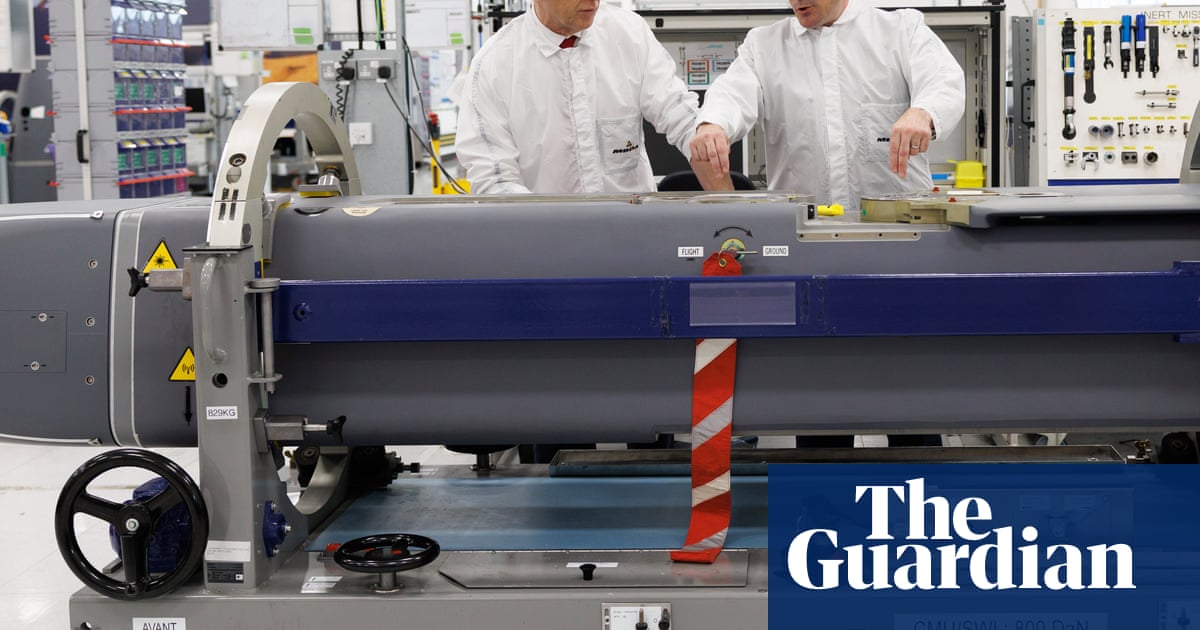Labour’s push towards increased militarisation, with Keir Starmer already havingslashed the aid budgetin favour of defence spending, may not be a policy greeted enthusiastically by many of the party’s core supporters.
But the government wants to win support for the change in thinking by arguing that investment in defence helps create skilled jobs, particularly outside London, such as at shipyards in Barrow, Devonport, Glasgow and Rosyth.
This “military Keynesianism” was emphasised on Sunday morning when ministers announced plans tobuild six new munitions factories, which would in time create 1,000 jobs and support a further 800, the Ministry of Defence said.
John Healey, the defence secretary, argued that by “diverting funds from overseas development aid”, money would “go into reinforcing the British industrial base, more jobs in every part of the UK” – an argument almost certainly made with Reform UK atthe forefront of the pollsat the back of his mind.
Fiona Hill, one of the three independent members of the government’s strategic defence review team, has long been focused on the impact of post-industrial decline on the economics and politics of Vladimir Putin and Donald Trump.
It reflects her personal experience. Hill grew up in County Durham, but moved to forge a successful career as a national security analyst in the US, mindful of her father’s advice about where she had grown up: “There is nothing for you here.”
Russia’s invasion of Ukraine and Britain’s support to help Kyiv defend itself have pushed the UK to seek to revive forms of manufacturing that the long period of peace after the cold war had made obsolete.
Last year, an agreement with Germany paved the way for a revival of artillery barrel manufacturing at a site in Telford, a decade after it had been abandoned. And ahead of Monday’s strategic defence review, the government again focused on a long-term industrial commitment, this time to eventually build a fleet of Aukus nuclear powered attack submarines, starting in the late 2030s. Assembled in Barrow, the effort would support 30,000 jobs, the MoD said.
Such a longer-term focus may also help conceal the relative shortage of money in the short term for defence. The current commitment to lift defence spending to 2.5% of GDP in 2027 may easily be swallowed up in funding existing commitments and overspends.
Fresh spending on armaments is of course hardly neutral – it depends entirely on what the weapons are intended to be used for. And while there may be strong public support for Ukraine, in other cases the export of arms can be controversial.
Sign up toFirst Edition
Our morning email breaks down the key stories of the day, telling you what’s happening and why it matters
after newsletter promotion
In May, it emerged that the UKhad supplied $169m worth of armsto Israel between October and December last year, despite announcing a partial ban on exports in September amid concerns they could be used in breach of international law as part of the ongoing offensive against Gaza.
Critics argue that while state spending will always stimulate the economy and create jobs, defence spending may not be the most efficient way to do that. Astudy by Greenpeacelooking at the economies of Germany, Italy and Spain concluded that investing in healthcare, education or green technologies creates more jobs and growth than investing in defence.
A more honest position, said Sam Perlo-Freeman of Campaign Against Arms Trade, would be to “separate security arguments from economic arguments” and seek to justify military investment only the basis of the threat perceived. But it is not one that politicians are likely to make when it is possible to point to new factories being built and new jobs created as a result of defence spending.
